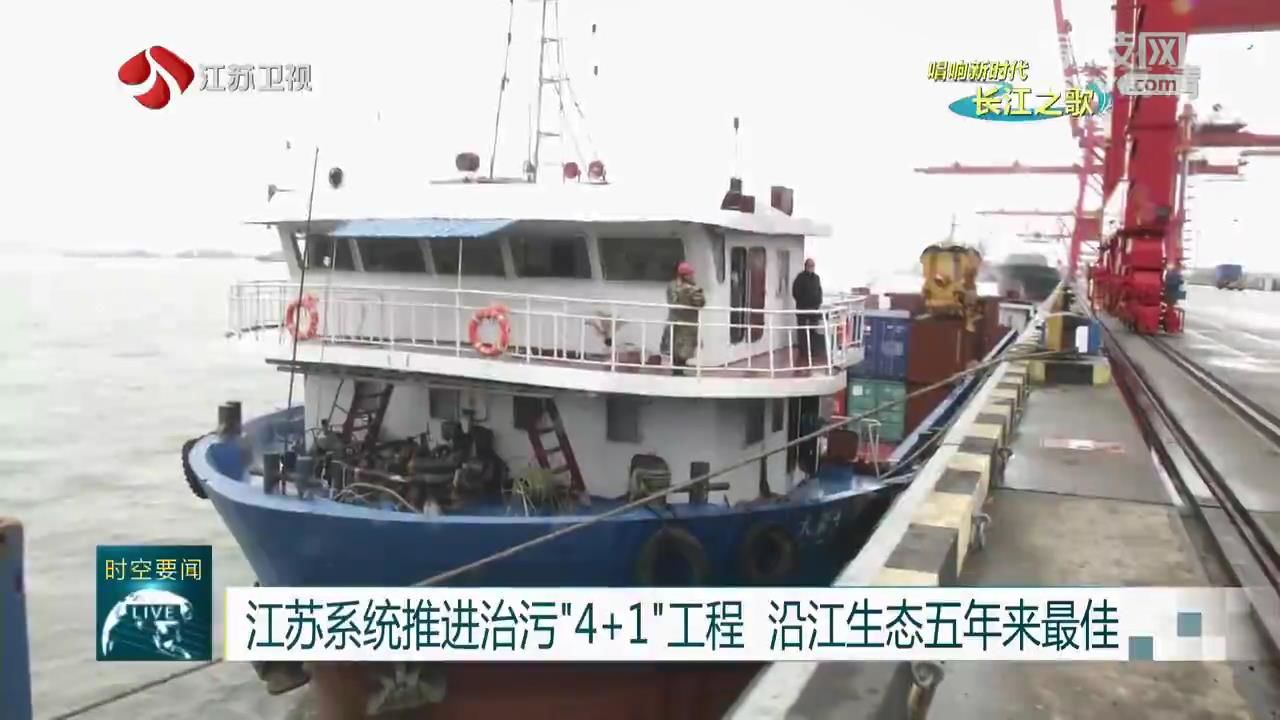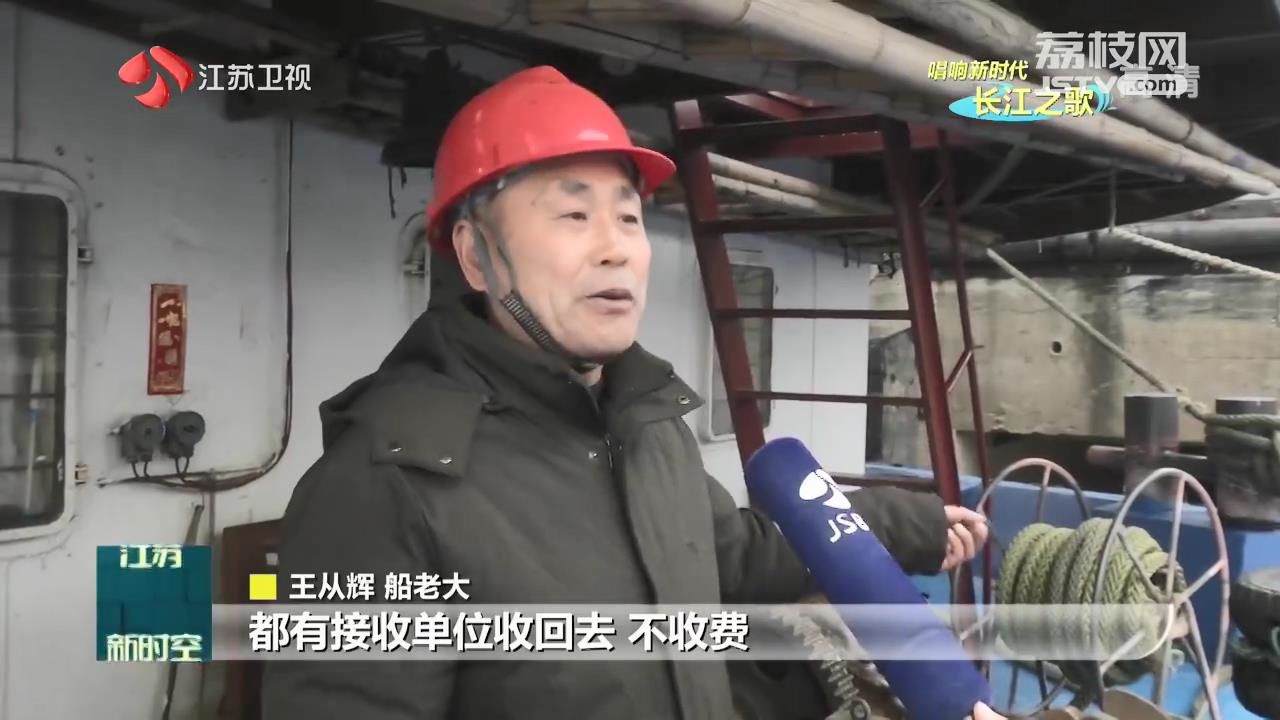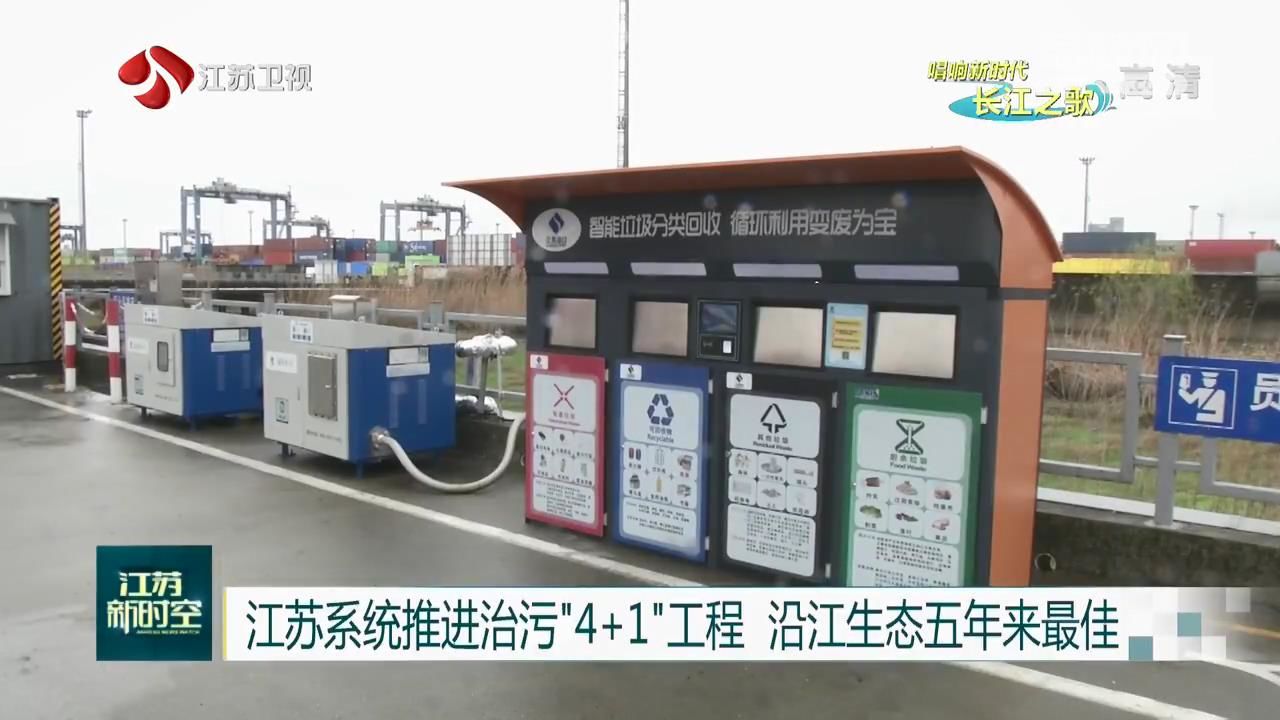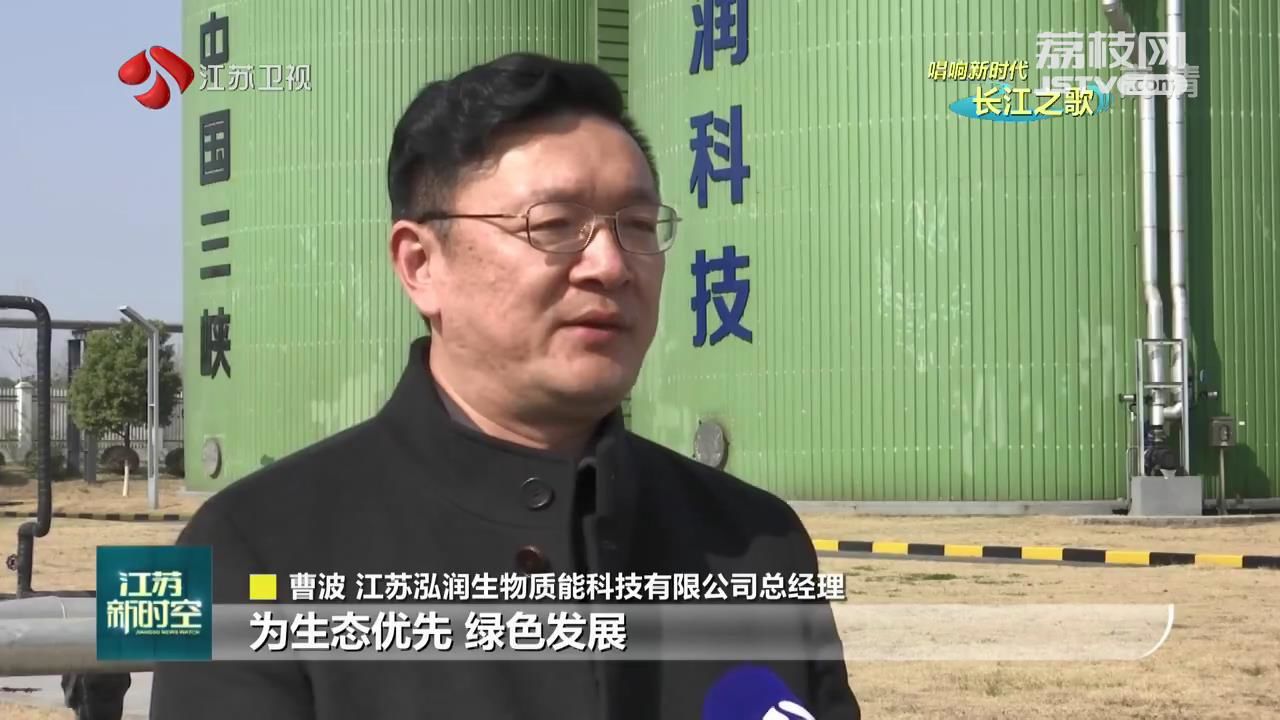East China’s Jiangsu province has placed high on the agenda the restoration of the Yangtze River's ecological environment by making systematic efforts to rein in pollution in the Yangtze River and promote the green development and the continuous improvement of ecological environment in the Jiangsu section of the Yangtze River.

At the wharf of Nanjing Ganglong Group Company, a cargo ship was seen directly transporting domestic sewage into the sewage treatment system of the port area with the help of a fixed suction device on the shore.

Ship owner
In the past
we used our own equipment to treat sewage
before it was discharged into the Yangtze River
which had an impact on the water quality
of the Yangtze River
Nowadays
domestic garbage and sewage
are directly recycled to the facilities
on the shore
and it is free of charge
In recent years, Nanjing Port Group has continued to increase investment, adding 11 sets of fixed domestic sewage suction devices, 3 sets of mobile suction devices, and smart trash cans to receive pollutants handed over by ships calling at the port for free.

The facilities are also equipped with a Beidou IoT intelligent scanning code system to ensure the coordinated supervision by the port authority, the shipowner and the maritime department.

Hao Ying, Deputy Director of Safety and Environmental Protection Department, Nanjing Port Group Co., Ltd.
We have required all ships
calling at the port
to transfer pollutants to treatment facilities onshore
before they can start loading and unloading
This has effectively avoided
the illegal discharge of pollutants
from ships into the Yangtze River
At the same time, Jiangsu has continued to improve its urban sewage and garbage treatment facilities. Zhenjiang Hongrun Technology Co., Ltd. has recycled more than 200 tons of kitchen waste every day by converting its domestic sludge into biogas and fertilizer through the interaction of organic matter.

Cao Bo, General Manager of Jiangsu Hongrun Biomass Energy Technology Co., Ltd.
Collaborative processing can reduce
construction and operating costs and
produce scale effects
In the future
we will continue to expand projects
along the Yangtze River to provide
more case support for ecological priority
and green development
Adhering to treating both symptoms and root causes and making systematic governance, Jiangsu has made great progress in advancing the overall treatment of urban sewage and garbage, chemical pollution control, agricultural non-point source pollution control, ship pollution control, and tailing pond pollution control.
In 2020, the province added 2,400 kilometers of urban sewage collection pipe network, cleaned 68 polluted rivers, shut down 995 small or illegal chemical plants while 97% of the livestock and poultry manure were utilized.
At present, Jiangsu reported excellent water quality in the local section of the Yangtze River, and the quality of the ecological environment along the river has reached its best level in the past five years.

Liu Xu, Director of the Yangtze River Division, Provincial Development and Reform Commission
We will always adhere to problem-orientated approaches
and systematic governance
promote natural restoration
coordinating green and high-quality development
focusing on long-term management
controlling environmental pollution
and promoting green transformation
so as to make the best possible effort
to protect the Yangtze River





